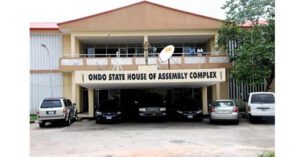


Jnr Pope: Nollywood and its lack of safety standards
In the tranquility of Nigeria’s rivers, a silent epidemic rages, claiming the lives of countless citizens who seek only to reach their destinations safely.
Recent tragedies have presented the urgency for a comprehensive response to the recurring boat accidents that are plaguing the nation.
In our opinion, the situation has assumed a dangerous dimension generating, in the process, grave concern that demands immediate attention.
Recalling the death of a Nollywood actor, Pope Odonwodo, popularly known as Junior Pope, has major concerns on safety and regulations guidelines of boat operators.
The heartbreaking incident that unfolded in Anam River, Anambra State, recently, serves as a stark reminder of the gravity of this issue.
“Four actors, including Jnr Pope, fell into Anam River on their way to a location, and their bodies have been recovered.
It was revealed that only those who were wearing life jackets including the director of the movie, the cameraman and the production manager had life jackets.
These events, along with previous boat accidents, should serve as a collective wake-up call to the nation.
President Bola Tinubu’s call for a thorough and comprehensive investigation into the root causes of these preventable disasters is commendable.
The directive to involve various government agencies, including law enforcement, maritime safety, and transportation authorities, reflects a commitment to understanding and mitigating this crisis.
We also recall the year 2021 was marred by a series of boat mishaps, particularly in the northern region of the country. Kebbi State, in particular, witnessed a harrowing boat accident in June, where over 100 individuals tragically lost their lives. Most of the victims were traders, on their way to a market in Kebbi State when the boat capsized.
Prior to this devastating incident, Kebbi State had already suffered the loss of over 20 lives in the Yauri Riverboat mishap. These incidents underscore the pressing need for heightened vigilance and improved safety protocols in the region’s water transport.
The tragedy extended its grasp to other states as well, with a heartbreaking incident in Kano where 29 lives were lost, including young schoolchildren traveling to a religious event.
Also recently House of Representatives at Tuesday plenary urged the Federal ministry of transportation and agencies under it to immediately enforce safety standards and regulations in all Nigerian waterways.
Moving the motion on the safety regulations, Hon. Ibrahim noted that boat accidents in the Nigerian waterways were caused by overloading, lack of maintenance, over speeding, careless driving and bad weather.
He said, “Recall that on May 26, 2021, an overloaded boat carrying more than 160 passengers broke into two and sank in River Niger, leading to the death of 100 people and on 27 September, 2021 another mishap occurred in Lagos with one person confirmed dead after a boat capsized.
“The incessant boat mishaps occurring within the country’s waterways is as a result of the violation of boating laws and regulations by operators who board excessive number of passengers in their quest to boost income.
“Boat accidents can be curtailed by public sensitization campaigns, better enforcement of rules by regulatory agencies, constant checks on boats and removal of pollutants in the water.”
Adopting the motion via a majority voice vote of the members, the House mandated its Committees on Safety Standards and Regulations, Inland Waterways and Legislative Compliance to ensure implementation.
Improving safety on inland waterways
Water transport plays critical roles in the transport system and foreign trade of global economies blessed with imposing waterways and tributaries. Unlike road or air transport, age-old water transport is cheaper to maintain, reliable and aids conveyance of bulky and heavy goods.
Nigeria is among the first 15 countries globally ranked in total waterways length according to The World Factbook. But it has yet to explore this gift of nature to proudly end the traffic snarls gripping Lagos, its commercial centre hosting the nation’s busiest seaports and 65 percent of the industrial sector.
States with waterways should improve on safety guidelines, regulations and enforcement of operations of water transport. Activities of boat helmsmen should be strictly monitored to guarantee operation of only licensed captains in approved jetties.
The National Inland Waterways Authority must distinguish its statutory duties rather than exhibiting bigness in name and smallness in performance. It should rigorously tap into the huge potential in water transport through private sector-led initiative. The sector is a money-spinner if well explored to generate massive opportunities for aquarists, divers, marine biologists, anglers, hydrologists, boat makers, lifeguards and boat pilots.
Countries such as the Netherlands, Germany, the US, Hungary, Poland, Luxembourg and France have dynamically experimented with modern water transport to global esteem
This should interest those saddled with the responsibility of maintaining safe and quality water transport in Nigeria.
UNESCO, in a paper titled, ‘Inland Waterborne Transport: Connecting Countries,’ underscored the significance of water transport. Nigeria, with inadequate means of transport, ought to critically examine the submission.
It states, “Traditionally, the benefits of using inland waterways and investing in projects to improve rivers for navigation have included lower costs for the transport of goods compared with other modes, fewer traffic delays, a better safety record, and an increase in the movement of people and goods that encourages domestic and international trade. Increasingly, however, the benefits of IWT are being viewed in a broader sense, including factors such as lower levels of air pollutants, reduced greenhouse gases, less highway congestion, and an improvement in overall safety.”
The regulators should recommend heavy sanctions for anyone found culpable in boat disasters. Like in other boat accidents in the Asian country, Indonesia wasted no time arresting two police officers indicted in a boat disaster in 2001, which killed over 350 persons and reportedly organised by smugglers for illegal immigrants.
Governors must walk the talk by protecting citizens’ lives. Road and air transport are not sufficient to cater to the transport needs of a country with an increasingly explosive population.



